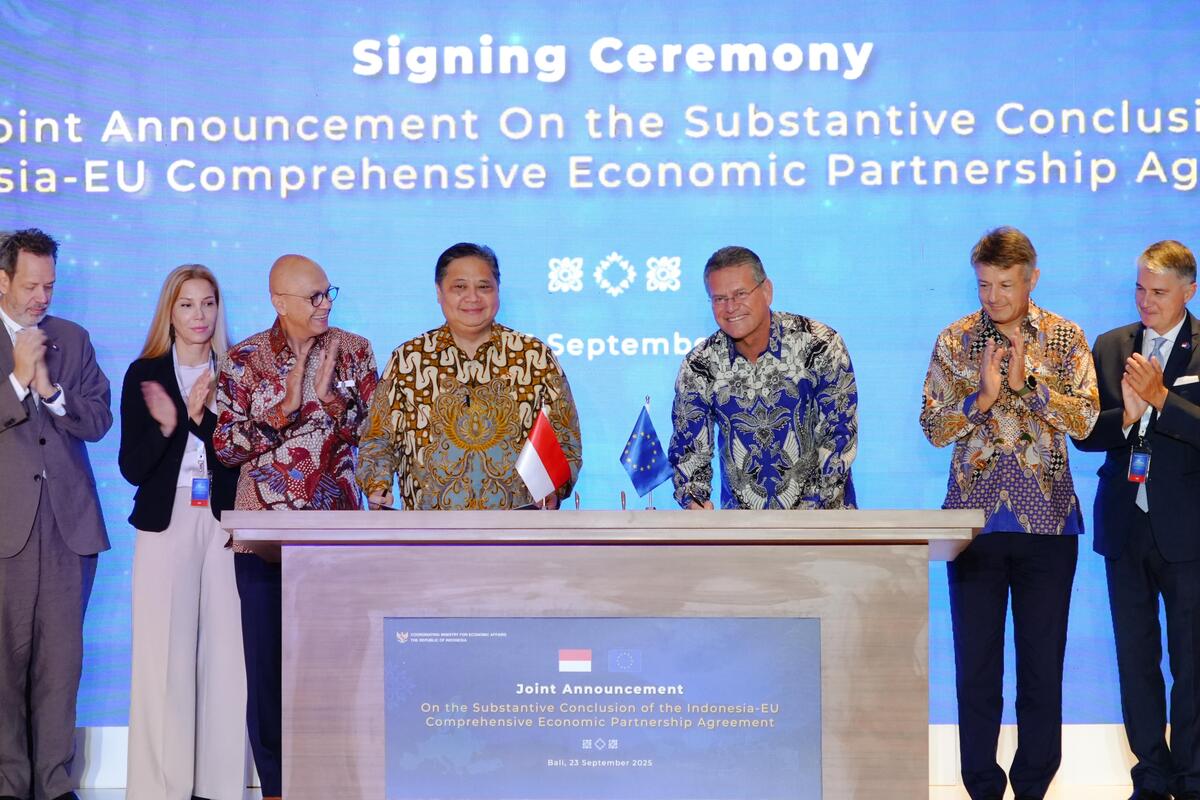Indonesia and the European Union (EU) have officially concluded the Indonesia–European Union Comprehensive Economic Partnership Agreement (IEU-CEPA), marking a new milestone in bilateral trade relations. After nine years of negotiations involving 19 formal rounds and multiple intersessional meetings since 2016, the deal was signed in Nusa Dua, Bali, on Tuesday, September 23, 2025.
“After nine years of negotiations, under the leadership of President Prabowo Subianto, the IEU-CEPA agreement has finally reached a conclusion,” said Haryo Limanseto, spokesperson for the Coordinating Ministry for Economic Affairs, as quoted by Antara.
Haryo emphasized that the agreement reflects Indonesia’s consistent and determined economic diplomacy in protecting national interests while opening wider access to international markets. He noted that IEU-CEPA is designed to create a more inclusive, sustainable, and mutually beneficial economic partnership.
A Major Milestone in Bilateral Trade
The European Union is Indonesia’s fifth-largest trading partner, with bilateral trade reaching USD 30.1 billion in 2024. Indonesia also recorded a trade surplus, rising from USD 2.5 billion in 2023 to USD 4.5 billion in 2024.
Minister of Economic Affairs Airlangga Hartarto, who co-signed the agreement with European Commissioner for Trade and Economic Security Maros Sefcovic, called the deal a turning point in Indonesia-EU relations.
“This is a collaboration between 723 million people from both sides, representing an economic value of USD 21 trillion. There are many opportunities and futures that depend on this large economic bloc,” Airlangga said during the signing ceremony, as reported by Kontan.
He further explained that IEU-CEPA is expected to take effect by early 2027 at the latest. The deal will benefit key Indonesian industries such as textiles, footwear, apparel, furniture, and other labor-intensive sectors, which currently employ around five million workers.
“Five million workers now celebrate that they have better prospects in the future as the market grows,” Airlangga said.
Under the agreement, around 80% of Indonesia’s exports to the EU will enjoy zero import tariffs. Beneficiaries include palm oil, fisheries, footwear, garments, and renewable energy products, along with electric vehicles. Analysts project that trade volume between Indonesia and the EU could double within the next five years.
Haryo stressed that the deal holds “strategic value, not only delivering tangible benefits for businesses in both Indonesia and Europe, but also reinforcing the shared commitment to sustainability, which has become a central policy focus of the EU.”
A Forward-Looking Partnership
For the EU, the agreement is seen as both economic and strategic. Commissioner Maros Sefcovic described IEU-CEPA as a modern, forward-looking trade pact.
“With this agreement, the EU and Indonesia send a strong message to the world that both sides stand united in their commitment to open, rules-based international cooperation that brings mutual benefits,” Sefcovic said, as reported by Liputan6.
He added that the partnership would boost investment, strengthen value chains, support digital transformation, and diversify supply chains—particularly for critical raw materials essential to future industries.
“Europe and Indonesia already share a strong tradition of cooperation,” Sefcovic noted, underlining that the agreement would further accelerate innovation and long-term economic ties.
The signing was followed by a bilateral forum between Airlangga and Sefcovic, as well as the Indonesia–EU Business Outlook Forum, which gathered business leaders and ambassadors from EU member states. The forum aims to deepen business understanding, expand collaboration, and build long-term trade partnerships.
As both sides look ahead to the official implementation of IEU-CEPA in 2027, the deal is expected to enhance Indonesia’s global competitiveness while giving the EU broader access to one of Southeast Asia’s fastest-growing economies.
Source: Antara, Tempo, Kontan, Liputan6
Photo Credit: ekon.go.id


